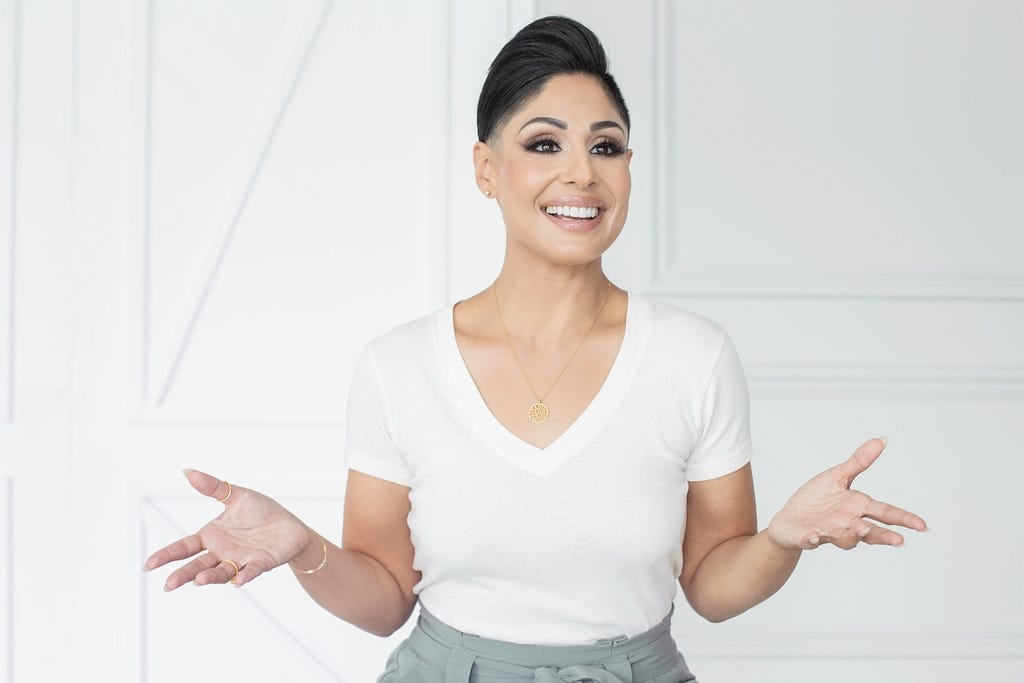
Educate Yourself. Spend time learning about eating disorders, their symptoms, and available resources. As someone who struggled with disordered eating, I think it would have made a significant difference if a loved one had been able to identify what I was going through or offer support through it. I yearned for someone to notice what I was going through, to look beyond the surface and to understand my deep-seated struggles. Educating yourself to support a loved one who’s struggling with an eating disorder will validate their experience and offer reassurance that they aren’t expected to journey towards recovery alone.
Eating disorders are complex mental health conditions that affect millions worldwide, transcending age, gender, and cultural boundaries. They are not simply about food but involve a range of psychological, physical, and social issues. Supporting a loved one through this struggle can be challenging, requiring understanding, patience, and knowledge of the right approaches to truly make a difference.
In this series, we aim to shed light on the most effective ways to offer support, understanding, and hope to those battling an eating disorder. We are talking to psychologists, nutritionists, doctors, therapists, and survivors, who can provide valuable perspectives on nurturing recovery, fostering resilience, and promoting healthy relationships with food and body image. As a part of this series, we had the pleasure of interviewing Sonia Jhas.
Sonia Jhas is a mindset author and TEDx speaker who helps high-achieving women learn how to build a life of unapologetic self-fulfillment. Her special brand of inspiration resonates with a global audience, connecting through her signature coaching techniques, down-to-earth humour, and a raw openness about her own journey. Her bestselling book, I’ll Start Again Tomorrow. And Other Lies I’ve Told Myself is available now and her highly anticipated podcast, “The Sweet(er) Spot,” is scheduled to broadcast April 2024.
Thank you so much for joining us in this interview series. Before we dive into our discussion, our readers would love to “get to know you” a bit better. Can you share with us the backstory about what brought you to your specific career path?
For many years, I struggled with poor self-esteem and crippling perfectionism and, eventually and inevitably, hit my lowest of lows (involving a called-off wedding, an overwhelming see-saw cycle between comfort-eating and shame-spiralling, and a full-blown panic attack on my bathroom floor). Knowing I needed a significant change in my life, I began a journey of self-discovery and transformation. Through education, introspection, and perseverance, I cultivated a deep understanding of the interconnectedness of physical and mental well-being and learned how to cultivate real happiness. This led me to pursue a career dedicated to empowering others to unlock their full potential and embrace a mind-body approach to happiness and well-being.
Can you please give us your favorite “Life Lesson Quote”? Can you share how that was relevant to you in your life?
“The only way out is through.” This quote has become a guiding light in my life, reminding me that growth happens when we face challenges head-on rather than avoiding them. Whether it’s overcoming personal obstacles or professional hurdles, embracing this mindset has empowered me to navigate adversity with resilience and emerge stronger on the other side.
Are you working on any exciting new projects now? How do you think that will help people?
A project I’m really excited about is my upcoming podcast, ‘The Sweet(er) Spot.’ I want this podcast to be a space where high-achieving women can learn how to win big while still honouring who they really are and what they really need. I want to help other women explore what living a life of ease, joy, and fulfillment looks like for them.
According to this study cited by the National Association of Anorexia Nervosa and Associated Disorders, at least 30 million people in the U.S. of all ages and genders suffer from an eating disorder. Can you suggest 3–5 reasons why this has become such a critical issue recently?
Unresolved trauma, emotional distress, or low self-esteem can manifest in disordered eating patterns. I don’t think it’s any coincidence that post-pandemic, we’ve seen a continual rise in maladaptive coping mechanisms — we had the rug swept out from under our feet, and we’re all trying to find ways to heal, cope, or exert some level of control.
We’ve also seen a significant return of the “heroin chic” body ideal, alongside the use of prescription medication, like Ozempic, to achieve extreme levels of thinness. In the media, street ads, and even our day-to-day lives, conversations about weight loss, restrictive diets, and quick-fix weight loss solutions are on a constant loop. The pervasive promotion of “thinness at any cost” perpetuates a distorted relationship between food and body image.
And, of course, the great beast that is social media provides a platform for visuals and conversations that fuel the cycle of disordered eating behaviours. We are bombarded with carefully curated versions of perfection day in and day out. We’ve created a culture of comparison and unrealistic beauty standards that can exacerbate feelings of inadequacy, self-criticism, and perfectionism.
Based on your insight, what can concrete steps can a) individuals, b) corporations, c) communities and d) leaders do to address the core issues that are leading to this problem?
On an individual level, we can start by being more conscious of the language we use and conversations we have around body image and eating disorders. We can also prioritize real self-care — the kind that cultivates self-compassion and acceptance and challenges harmful thought patterns. (Think journaling, positive affirmations, and mindful movement).
It’s also important that corporations, communities, and leaders step up and address these issues. Corporations should support employees by cultivating positive, balanced workspaces and making mental health resources available and accessible. To foster a culture of inclusivity and body positivity within communities, we can advocate for comprehensive health education in schools (particularly teaching our youth about mental health, healthy eating habits, and positive body image) and support local organizations that provide resources for eating disorder prevention and treatment. Leaders must advocate for policy changes that promote mental health parity, allocate resources for eating disorder research and treatment, and lead by example by prioritizing employee well-being and de-stigmatizing discussions around mental health.
As you know, one of the challenges of an eating disorder is the harmful,and dismissive sentiment of “why can’t you just control yourself”. What do you think needs to be done to make it apparent that an eating disorder is an illness just like heart disease or schizophrenia?
Education and awareness are crucial to dispel the misconception that the root cause of eating disorders is simply a matter of lacking willpower or self-control. There’s a complex interplay of genetic, environmental, and psychological factors that can contribute to eating disorders — it’s never just a case of not being able to control oneself. With more open and informative conversations, we can foster greater empathy and understanding to shift the narrative from blame to compassion.

Here is the main question of our interview. Can you please share with our readers 5 ways to support a loved one who is struggling with an eating disorder? If you can, can you share an example from your own experience?
1 . Educate Yourself. Spend time learning about eating disorders, their symptoms, and available resources. As someone who struggled with disordered eating, I think it would have made a significant difference if a loved one had been able to identify what I was going through or offer support through it. I yearned for someone to notice what I was going through, to look beyond the surface and to understand my deep-seated struggles. Educating yourself to support a loved one who’s struggling with an eating disorder will validate their experience and offer reassurance that they aren’t expected to journey towards recovery alone.
2 . Practice Active Listening. Eating disorders can feel extremely isolating — having a space to voice fears, frustrations, and insecurities without fear of judgment or dismissal will provide a huge amount of comfort. In your loved one’s moments of vulnerability, make sure you offer support and validation. The goal of active listening is to build a genuine connection and provide an empathetic, safe space where your loved one knows they can express themselves and be heard.
3 . Encourage Professional Help. Offer support in seeking professional treatment and accompany your loved one to appointments if needed. It’s helpful to approach this step with gentle persistence, as taking that initial step toward seeking help can often be the most daunting part of the journey. Reassure your loved one and let them know that they have your support, no matter what, and hear them out if they’re experiencing anxiety or reluctance to seek help.
4 . Become their Self-Care Buddy. Get your loved one to join you in activities that promote self-care, self-compassion, and mindfulness. This could include the more “typical” self-care practices, like journaling, meditation, or yoga, or it could be peaceful nature walks, exploring creative pursuits, or sending a text at the same time each day reminding each other to pause for a moment and take a deep breath. Whatever self-care looks like for you, the key is that you’re encouraging your loved one to take part in activities that build up their self-love, self-confidence, and overall enjoyment of life. These moments of self-reflection and tenderness can be invaluable in their healing journey.
5 . Lead by Example. Model healthy behaviours around food and body image, and avoid engaging in conversations or behaviours that may trigger or exacerbate your loved one’s struggles. Reflecting on my struggles, I realize the profound impact of my family and friends’ behaviours around food and body image. I didn’t have many examples of a balanced approach to nutrition and exercise, free from restrictive diets or obsessive behaviours. And so, I also got swept up into a cycle that reinforced harmful ideals and perpetuated triggering conversations. I believe it would have been helpful to have had more conversations about body positivity and self-acceptance as I grew up, so I make a conscious effort to ensure I’m having those conversations with my own children.
How do you navigate the balance between offering support and respecting the autonomy of a loved one with an eating disorder?
Balancing support and respecting autonomy requires open communication, empathy, and a willingness to meet the individual where they are in their recovery journey. It’s essential to offer support without imposing control or judgment, allowing your loved one to take ownership of their healing process while offering encouragement and guidance along the way. At the end of the day, you can’t force someone to be ready to recover. Make sure your loved one knows that you’ll be there to support them every step of the way.
Is there a message you would like to tell someone who may be reading this, who is currently struggling with an eating disorder?
To anyone grappling with an eating disorder, I want you to know that you are not alone and that help is available. Recovery is possible, and it’s okay to reach out for support. You deserve to love yourself. You deserve compassion. You deserve healing. Your journey toward recovery, whatever it looks like, is valid and courageous.
In your experience, what are the most effective strategies for building resilience and a positive self-image in individuals recovering from an eating disorder?
Cultivate Self-Compassion. Practice kindness and understanding towards yourself, embracing imperfection and celebrating progress. Identify and nurture your strengths and talents to help establish a sense of empowerment and self-worth.
Seek Support. Surround yourself with a supportive network of friends, family, and professionals who can offer guidance and encouragement.
Set Realistic Goals. Break down larger goals into manageable steps, celebrating small victories along the way and acknowledging setbacks as opportunities for growth.
Embrace Mindfulness. Incorporate mindfulness practices such as meditation, yoga, or deep breathing exercises to cultivate awareness and resilience in the face of challenges.
What are your favorite books, podcasts, or resources that have helped people with this struggle? Can you explain why you like them?
If you are struggling with an unhealthy relationship with food, there are some excellent resources available to help you. Here are a few of my favourites:
Books:
- The Body Is Not an Apology by Sonya Renee Taylor provides a powerful exploration of radical self-love and body acceptance, offering transformative insights for anyone struggling with body image issues.
- Body Kindness by Rebecca Scritchfield offers a refreshing perspective on cultivating a positive relationship with your body through self-compassion, mindfulness, and intuitive eating practices.
Podcasts:
- “The Whole View Podcast” hosted by Stacy Toth follows a holistic, science-based approach to exploring and letting go of diet dogma, cultural shame, or personal guilt. A recovering lifelong dieter, Stacy really gets it, and her fight against fatphobia through education and inclusivity is inspiring.
- “Finding Your Food Voice Podcast” hosted by Julie Duffy Dillon delves into the complex relationship between food, body image, and emotions, offering compassionate guidance and practical strategies for healing. Julie is a registered dietitian and food behaviour expert who aims to fix diet culture.
Online Resources:
- Platforms such as The National Eating Disorders Association (NEDA) offer valuable resources, support groups, and educational materials for individuals and families affected by eating disorders.
- If you have children or teens in your life who are struggling with disordered eating or body image issues, the Dove Self Esteem Project’s Confidence Kit is also a great place to start.
You are a person of great influence. If you could inspire a movement that would bring the most amount of good to the largest amount of people, what would that be? You never know what your idea can trigger. 🙂
I imagine a movement that advocates for body positivity, inclusivity, and self-acceptance. It would challenge societal norms and celebrate diversity, creating a culture where everyone feels valued and worthy, regardless of their size, shape, or appearance.
How can our readers continue to follow your work online?
You can stay connected with me and access my free Momentum resources at soniajhas.com, or you can find me on Instagram and Facebook at @soniajhas or on TikTok at @sonia_jhas.
Thank you so much for these insights! This was so inspiring!
Sonia Jhas On How To Support A Loved One Who Is Struggling With An Eating Disorder was originally published in Authority Magazine on Medium, where people are continuing the conversation by highlighting and responding to this story.
